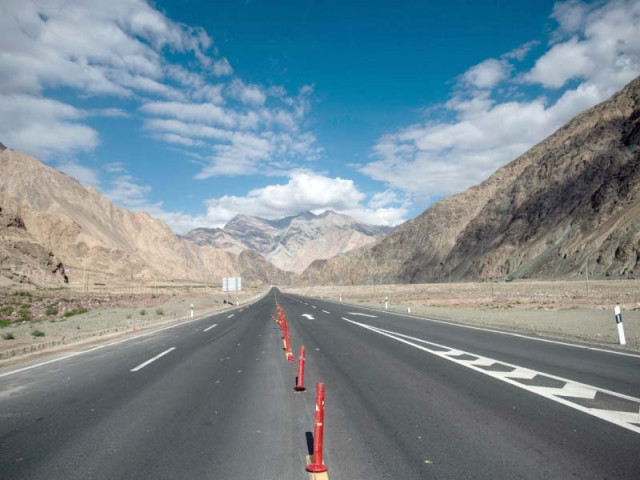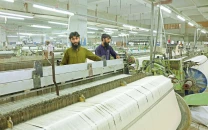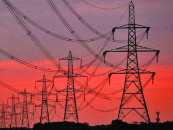World Bank to invest $460m in road from Peshawar to Afghan border
Project aimed at bolstering trade between both countries and creating job opportunities in war-torn areas

The lack of productive cross-border trade has severely affected the economy of north-western Pakistan, according to the World Bank. PHOTO: FILE
The board of directors of the World Bank is likely to approve the $460-million loan next month for Peshawar-Torkham Expressway Corridor project, according to World Bank documents. The total cost of the project is nearly $483 million and the remaining amount will be arranged by Pakistan from its own resources.
The major component of the loan, $383.6 million, will be given for the construction of the road that will have a total cost of $403 million. Another amount of $72 million will be sanctioned for the development of marble and horticulture sectors in FATA. Pakistan plans to build a new four-lane road from Peshawar to Torkham border, as the existing two-lane road cannot be modernised due to various constraints.
Ownership of homes: World Bank approves $145 million to expand mortgage loans
The World Bank study for the project underlines that improvements in security, infrastructure investments, and renewed regional economic cooperation have given new hope for the revival of cross-border trade and bolstering of economic growth.
It adds that the security situation in north-western Pakistan has improved dramatically over the past few years. In 2015, the reported number of insurgent attacks fell by almost one half; and in 2016, a further drop of 28% in terrorist attacks was reported. The energy shortfall is gradually being addressed by the establishment of micro-hydro power plants, while investments in transportation infrastructure are addressing bottlenecks to connectivity between Peshawar and the rest of Pakistan.
For the last over one year, World Bank’s activities have considerably slowed down after Pakistan’s macroeconomic position started deteriorating. The World Bank has withheld approval of a couple of policy loans after differences emerged over the government’s handling of the external sector.
World Bank ‘moderately’ satisfied with progress on $73m water project
During the first ten months of the fiscal year, the World Bank’s total disbursements to Pakistan remained at only $446 million, indicating that the total disbursements will remain far less than estimated $1 billion by end June. The PML-N government has taken more than $44 billion loans in the last almost five years but majority of these loans went into non-productive sectors, which has created debt sustainability problems.
The World Bank’s investment in Peshawar corridor project will help improve the infrastructure in addition to creating new job opportunities in the FATA.
World Bank denies Sharif laundered money
The lack of productive cross-border trade has severely affected the economy of north-western Pakistan, according to the World Bank. It said that the rates of economic growth, unemployment, and poverty in north-western Pakistan have fallen well behind the rest of Pakistan, forming a cycle of insecurity and conflict.
The 50-kilometre long Peshawar-Torkham project is part of the 281-kilometre long Peshawar-Kabul expressway. This Peshawar-Kabul expressway has been termed as the Gateway to Central Asia. The Peshawar-Torkham motorway will start from the Peshawar ring road near Hayatabad town, which is about 12 kilometres away from Peshawar city and ends at Torkham.
The existing Peshawar-Torkham road is part of the National Highway N-5 that traverses the historic Khyber Pass, which has great historical significance and has been an important trade route between Central and South Asia. The World Bank noted that the improvements to the existing highway are constrained by heavy population settlements on either side, a railway line running adjacent to the road, and steep gradients and sharp curves that are difficult for large multi-axle commercial trucks to negotiate.
The inefficiencies stemming from mostly dilapidated transportation network are estimated by the government to cause a loss of roughly 3.5% of the country’s annual gross domestic product.
The second component of the $460-million project is aimed at improving productivity of existing enterprises established in FATA and encouraging private investments in the area. For the development of the Khyber Pass Economic Corridor the World Bank will approve $72 million out of total estimated cost of $75 million.
Two target sectors are marble production, a sector in which FATA has 446 processing units, which accounts for 20% of Pakistan’s production, and horticulture. Both sectors have great potential for export.
The World Bank said that marble exports are currently limited, as the mineral can fetch prices around five to ten times higher in international markets than in local markets. Fruits and vegetables, which may be further processed, already comprise a substantial share of export volume through Torkham.
Published in The Express Tribune, May 20th, 2018.
Like Business on Facebook, follow @TribuneBiz on Twitter to stay informed and join in the conversation.



















COMMENTS
Comments are moderated and generally will be posted if they are on-topic and not abusive.
For more information, please see our Comments FAQ